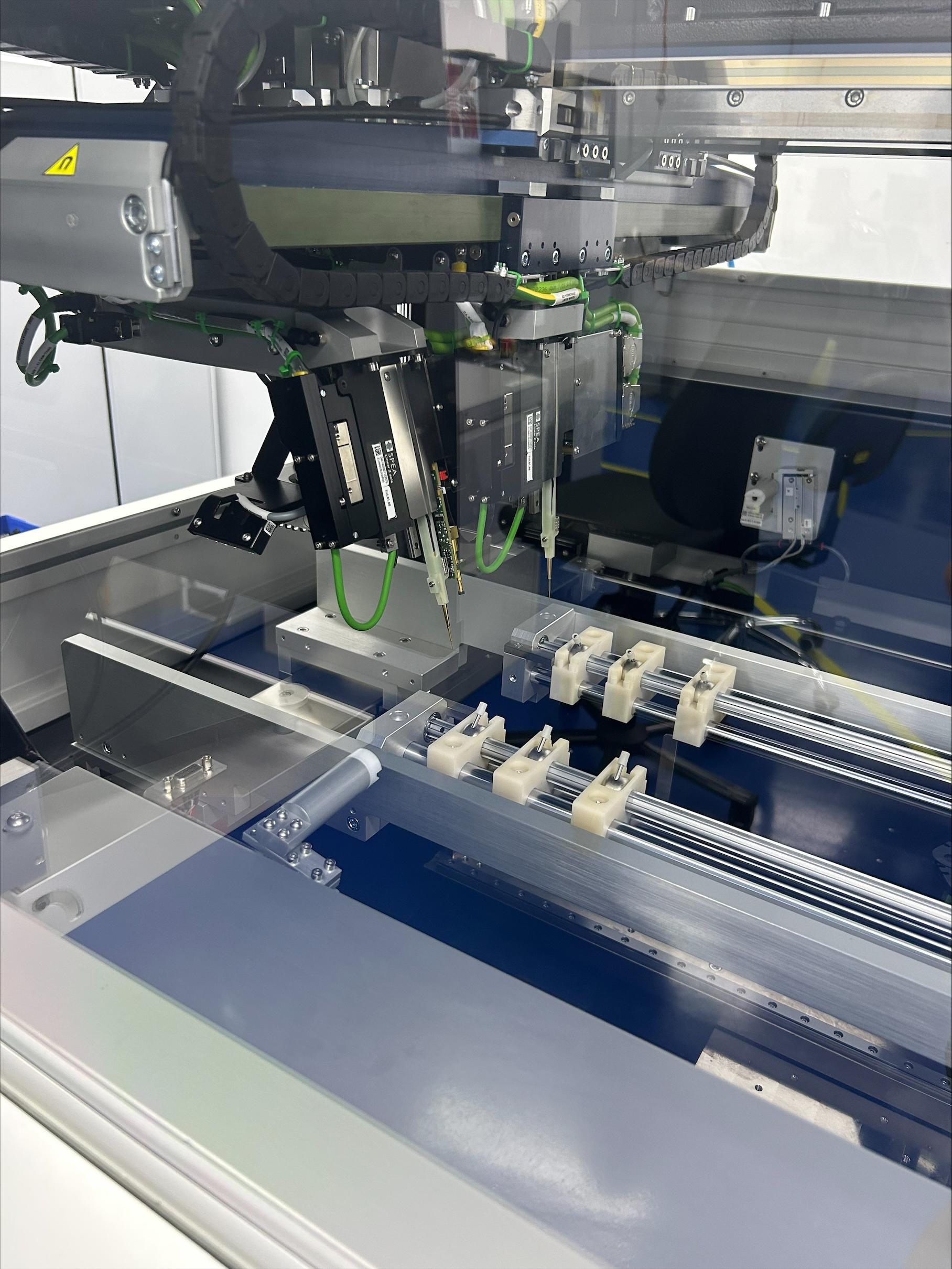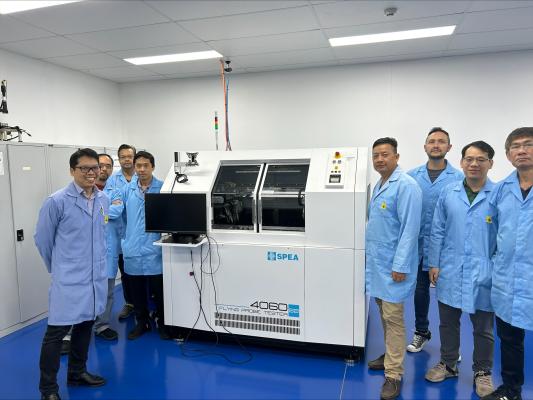By improving their complex electronics and avionics design Crystalaid are now addressing a critical gap in Australia’s space capabilities. The Queensland manufacturer’s components are important to the international space supply chain.
The circuit board components can withstand rigorous conditions such as extreme temperatures.
Crystalaid upgraded a vacuum vapour phase oven, and commissioned a flying probe tester, with support from the Australian Space Agency.
The Agency awarded two Moon to Mars Supply Chain Capability Improvement Grants to support this work.
This funding aims to grow Australian industry capability, capacity, and company supply chains.
Durable materials to handle the toughest environments
Crystalaid’s vacuum vapour phase oven is fundamental technology needed to solder components to the robust standards required for space.
These must be able to withstand very harsh environments.
The company already had two surface mount technology (SMT) lines. These could support the AS9100D certification required in the international aerospace industry.
But Crystalaid needed upgraded technology to supply components for space missions. This requires a much higher quality standard.
For example, the oven needs to measure and represent extreme temperatures like you would experience in space.
This ensures the solder on the PCBs doesn’t crack when subjected to major temperature changes.
‘The vacuum vapour oven has a high reliability for environments with intense temperature fluctuations,’ Crystalaid Manufacture Chairman Ross McKinnon said.
The oven uses vacuum technology that extracts the background air out of the oven before gas and liquid surround the components.
This eliminates or reduces air bubbles trapped in the solder paste during the printing process.
‘The likelihood of this happening is guaranteed to be less than 3%,’ according to Mr McKinnon.
The whole product, including mechanicals and plastics, can handle expansion or shrinking of the solder during deployment in space. This prevents cracking caused by the release of trapped air.

New equipment to make better circuit boards
The environmental conditions for space are challenging. They are more demanding on equipment than the conditions for aerospace, where Crystalaid has prior experience.
Crystalaid bought and integrated two new pieces of equipment to enhance their PCB manufacturing capability.
They commissioned a flying probe automated testing chamber, allowing probes to perform automated voltage and inductance testing.
These probes can touch and test defined points on the boards.
They instated an improved testing chamber that offers a huge temperature range, from minus 40 degrees, up to plus 150 degrees celsius.
This allows Crystalaid to test the expansion, contraction and performance of different metals at varying temperatures in the harshest environments.
Crystalaid is well positioned to deliver on space manufacturing and assembly contracts overseas, with the help of this extra equipment.
‘Having the equipment and capability we do, has supported our positioning and standard for future space projects,’ Mr McKinnon said.
‘This is our core differentiator – that we are uniquely primed and ready to manufacture for space.
‘It’s a game change for us as all partners and key manufacturing opportunities are measured to this standard.’


Attractive onshore capabilities for international markets
Crystalaid have lifted their AS9100D aerospace certification. They are one of the few AS9100D certified ‘build to print and test’ contract manufacturers in Australia.
Now they can supply Australian made components, with the quality and complexity needed, for space missions with offshore partners.
This fills a gap in the market. There have not been any Australian manufacturers of SMT circuit boards that are space-ready, until now.
As space PCBs are of the highest standard, Crystalaid can now also offer better PCBs to other markets too.
‘These markets include but are not limited to working with telecommunications, defence, localised GPS positioning, gimbals, targeting and signal and operational systems,’ Mr McKinnon said.
Crystalaid has designed and implemented a quality management system (QMS). It supports the order and supply of these components.
The QMS enables Crystalaid to respond to space supply chain opportunities overseas. They can bid on international space projects.
Crystalaid’s products have already attracted interest from large suppliers in the Moon to Mars supply chain. Some of these companies include UAV Orbital, EOS and Blacksky.

